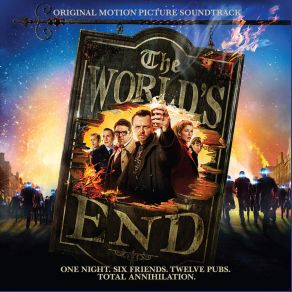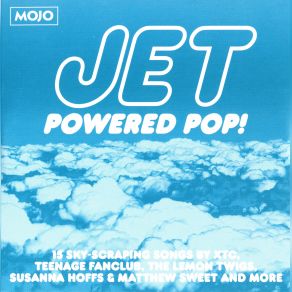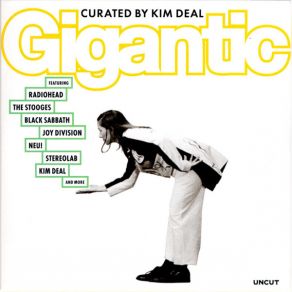Teenage Fanclub
Wikimp3 information about the music of Teenage Fanclub. On our website we have 25 albums and 64 collections of artist Teenage Fanclub. You can find useful information and download songs of this artist. We also know that Teenage Fanclub represents Alternative genres.
Biography
[Edit]After first gaining acclaim for a dense, melodic sound that anticipated the coming emergence of grunge, Scotland's Teenage Fanclub spent the remainder of their career as torch-bearers for the power pop revival, unparalleled among their generation for both their unwavering adherence to and brilliant reinvention of the classic guitar pop of vintage acts like Big Star and Badfinger. Blessed with the talents of three formidable singers and songwriters (Norman Blake, Gerard Love, and Raymond McGinley, all sharing an unerring knack for crafting immediately infectious melodies), Teenage Fanclub's radiant brand of pop classicism enjoyed only a brief moment of commercial and critical vogue, and over time, the band's devotion to its unapologetically old-fashioned sensibility yielded a dwindling fan base and virtually non-existent record sales. Nevertheless, almost none of their contemporaries can claim either Teenage Fanclub's consistency or longevity — though never groundbreaking or hip, their music possesses a timelessness and accessibility matched by few.
Singers/guitarists Blake and McGinley first teamed up with singer/bassist Love in 1987 as members of Glasgow's short-lived Boy Hairdressers. The group issued a single, "Golden Shower," on the famed Scottish indie label 53rd and 3rd before disbanding. After a brief stint with the BMX Bandits, Blake reunited with Love and McGinley to form Teenage Fanclub in 1989; drummer Francis McDonald, a fellow BMX Bandit, completed the original lineup, although McDonald was replaced by fan Brendan O'Hare during sessions for the group's debut album, 1990's A Catholic Education. Released on the Creation label overseas and on the fledgling Matador imprint in the U.S., the album's thick, murky squall staked out sonic territory subsequently occupied by the nascent grunge movement. It also made Teenage Fanclub an instant critical favorite.
The God Knows Its True EP soon followed, but although American major labels came courting, the band still owed Matador one more record. They submitted The King, a ramshackle collection of instrumentals capped off by a tongue-in-cheek rendition of Madonna's "Like a Virgin." Instead, the record was summarily rejected by Matador honcho Gerard Cosloy, and after paying Cosloy what they felt the remainder of their contract was worth, Teenage Fanclub signed to Geffen.
Never shy about celebrating their inspirations — covers of the Beatles' "The Ballad of John and Yoko," the Flying Burrito Brothers' "Older Guys," and Phil Ochs' "Chords of Fame" are scattered across various singles and EPs — Teenage Fanclub's 1991 Geffen debut, Bandwagonesque, gloriously evoked the raggedly radiant pop manna of Big Star, the famed 1970s cult band led by ex-Box Tops frontman Alex Chilton and his singing/songwriting partner Chris Bell. With its newfound melodic ingenuity, brash guitar sound, and gorgeous harmonies, the record became a massive critical success, and although mainstream pop radio failed to bite, the group found a warm welcome on collegiate airwaves. Although somewhat hard to believe in retrospect, Bandwagonesque topped Spin magazine's best-of-1991 year-end list in the face of staggering competition including Nirvana's Nevermind, My Bloody Valentine's Loveless, and R.E.M.'s Out of Time. A few months later, they were tapped as Rolling Stone's Hot Band for 1992, and at the peak of their success, the Fannies even performed on Saturday Night Live, that same year also opening for Nirvana.
Although the title of the 1993 follow-up Thirteen served immediate notice that Teenage Fanclub's Big Star fetish continued unabated, the album's bitter lyrical outlook and heavier guitar sound owed much to Neil Young, while the epic closer, "Gene Clark," honored the pioneering Byrds co-founder. Critical reception was decidedly icy, however, and in 1994, O'Hare was dismissed from the lineup, briefly resurfacing in Mogwai before mounting his own project, the Telstar Ponies. Ex-Soup Dragon Paul Quinn assumed drumming duties for the 1995 follow-up, the shimmering Grand Prix; by now, however, whatever critical cachet the Fannies had amassed was long gone, and after the disc sold poorly on both sides of the Atlantic, Geffen dropped the group from its roster. Sony picked up their contract just long enough for a U.S. release of 1997's Songs From Northern Britain, which again made few waves outside of the power pop faithful. Quinn left Teenage Fanclub in the midst of completing 2000's Howdy! More setbacks were to follow as Sony refused to release Howdy in the United States. The album eventually recieved distribution via Thirsty Ear in 2001, a year after its original release.
A year later, the band brought a relationship they'd developed with spoken word artist Jad Fair to fruition by backing him on the album Words of Wisdom and Hope. They also began assembling the retrospective anthology Four Thousand Seven Hundred and Sixty-Six Seconds: A Short Cut to Teenage Fanclub, which appeared in 2006. It took three more years for Teenage Fanclub to return to the studio, which they eventually did by working with post-rock icon John McEntire at his Soma recording studio. After forming their own label, Pema, the Fanclub released Man-Made in 2005 and Shadows in 2010.
Title: Everything Is Falling Apart - Single
Artist: Teenage Fanclub
Genre: Rock, Punk Rock, Alternative
Title: Howdy
Artist: Teenage Fanclub
Genre: Jazz, Free Jazz, Rock, Alternative Rock, Pop, Pop Rock, Alternative, Indie
Title: Words of Wisdom and Hope
Artist: Teenage Fanclub, Jad Fair
Genre: Rock, Indie Rock, Alternative
Title: Association! - EP
Artist: Teenage Fanclub, International Airport
Genre: Rock, Indie Rock, Progressive Rock, Punk Rock, Alternative
Title: Shadows (Bonus Track Version)
Artist: Teenage Fanclub
Genre: Rock, Indie Rock, Pop, Alternative
Collections
Title: Judgment Night (Music from the Motion Picture)
Genre: Hip Hop/R&B, Rap, Rock, Theatre/Soundtrack
Title: Diving for Pearls - 30 Years of Fire Records
Genre: Alternative
Title: Diving for Pearls - 30 Years of Fire Records
Genre: Alternative
Title: Stereoparty 2004
Genre: Alternative
Title: DGC Rarities, Vol. 1
Genre: Rock
Title: Fire Is Good
Genre: Rock, Alternative
Title: International Hip Swing
Genre: Rock, Alternative
Title: Young Adult (Music from the Motion Picture)
Genre: Pop, Theatre/Soundtrack
Title: A Rocking Time Mixtape: 2Min -
Genre: Ambient, Trip Hop, Electronica, Industrial, Hip Hop/R&B, Avant Garde Jazz, Rock, Alternative Rock, Blues Rock, Experimental Rock, Folk Rock, Garage Rock, Glam Rock, Indie Rock, New Wave, Psychedelic Rock, Punk, Post Punk, World Music, Country Rock, Pop, Pop Rock, Indie, Experimental
Title: In A Field Of Their Own, Volume Two
Genre: Ambient, Electronica, House
Title: It'S A Cool, Cool Christmas
Genre: Alternative Rock, World Music, Kids
Title: The Brit Box
Genre: Alternative Rock, Garage Rock, Indie Rock, Pop
Title: 100 Essential Tracks: Rock Hits (CD6)
Genre: Rock
Title: The World's End (Unofficial Soundtrack)
Genre: Theatre/Soundtrack
Title: Young Adult (Original Soundtrack)
Genre: Theatre/Soundtrack
Title: Mojo Presents: 20 From 20
Genre: Indie
Title: NME Presents The 90's (CD3)
Genre: Rock, Dancefloor, Pop
Title: Instant Karma - Uncut (A Tribute To John Lennon)
Genre: Rock
Title: Why Don'T We Do It In The Road
Genre: Hip Hop/R&B, Soul, Blues, Jazz, Rock, Country, Pop, Pop Rock
Title: NME Top 500 Songs Of All Time (Parte II) (CD2)
Genre: Pop
Title: Top 40 - Indie (CD2)
Title: The Party Mix Indie (CD1)
Title: Uncut (A Tribute To John Lennon)
Genre: Rock
Title: Uncut: Gimme Danger
Genre: Rock
Title: Merge Records Fall Sampler 2014
Genre: Indie
Title: Made In Scotland (CD2)
Genre: Blues, Rock, World Music, Country, Folk
Title: Britpop At The BBC (CD2)
Genre: Pop
Title: Carry On Kinky Beats
Genre: Breakbeat , Electronica, Soul, Nu Jazz, Funk
Title: The Party Mix - Rock (CD3)
Genre: Rock
Title: What's Up Matador (CD1)
Genre: Alternative Rock, Indie Rock
Title: Britpop At The BBC
Title: 100 Hits: Indie
Genre: Indie Pop
Title: Rock 90s Vol. 1 (CD2)
Genre: Rock, Punk, Alternative
Title: Rock 90s Vol. 4 (Original Soundtrack) (CD2)
Genre: Rock, Punk, Pop, Alternative, Theatre/Soundtrack
Title: Promo Connected Away October (CD1)
Genre: Rock, Reggae, Ska, Theatre/Soundtrack, Celtic
Title: Rock School 90s (CD1)
Genre: Rock, Hard Rock, Heavy Metal, Alternative
Title: Rock School 90s (CD2)
Genre: Rock, Hard Rock, Heavy Metal, Alternative
Title: Dad Songs (Demon Music Group Ltd) (CD2)
Genre: Soul, Blues, Rock, New Wave, Power Pop, Punk Rock, Alternative, Indie
Title: The MOJO Anthology (Issue 300, November 2018)
Genre: Alternative
Title: Power Pop Essentials 2020 (CD1)
Genre: Dancefloor, Pop, Dance Pop
Title: Power Pop Essentials 2020 (CD2)
Genre: Dancefloor, Pop, Dance Pop
Title: 100 Greatest 90s Indie Classics (CD2)
Genre: Indie Pop, Indie Rock, Alternative
Title: NOW Live Forever: The Anthems (CD4)
Genre: Hip Hop/R&B, Rock, Punk Rock, Pop, Alternative, Indie
Title: New Revolution: Rock Indie Music (CD2)
Genre: Alternative
Title: Alternative Rap Essentials (CD1)
Genre: Hip Hop/R&B, Rap, Pop
Title: Jangle Pop Essen (CD1)
Genre: Garage, Rock, Emo, New Wave, Punk, Pop, Alternative, Indie
Title: Jangle Pop Essen (CD2)
Genre: Garage, Rock, Emo, New Wave, Punk, Pop, Alternative, Indie
Title: Shoegaze And Dreampop Essentials (CD1)
Genre: Alternative
Title: Jet Powered Pop! (15 Sky-Scraping Songs)
Genre: Alternative Rock, Pop
Title: Alternative Answers 2024 (CD1)
Genre: Rock, Punk Rock, Pop, Alternative, Indie
Featuring albums
Title: The World's End (Original Motion Picture Soundtrack)
Artist: Various Artists
Genre: Theatre/Soundtrack
Title: The Late Great Daniel Johnston: Discovered Covered
Artist: Various Artists
Genre: Alternative Rock































































































